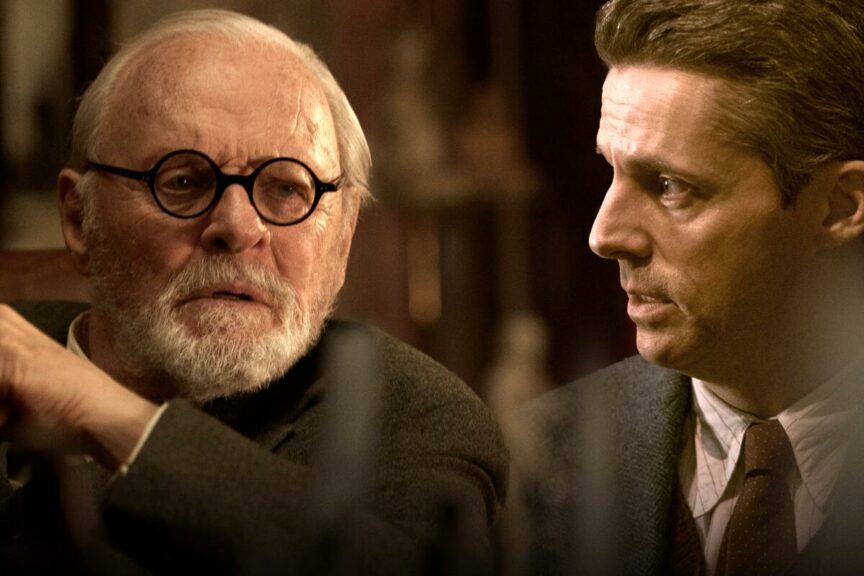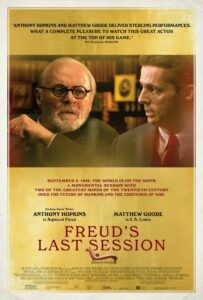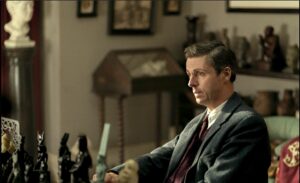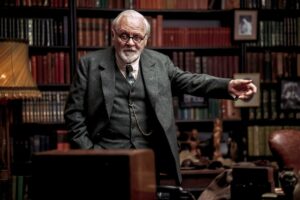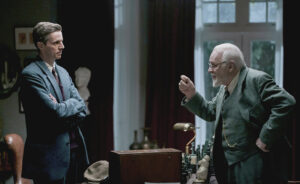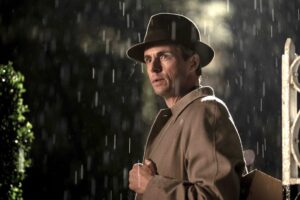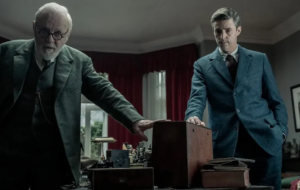Directed by Matt Brown | Written by Brown and Mark St Germain, based on a play by St Germain | 108 min | ▲▲▲△△
Here’s a movie based on a play that imagines a daylong meeting in London in September 1939 between “Christian apologist” CS Lewis, who would write The Lion, The Witch, And The Wardrobe, and Sigmund Freud, father of psychoanalysis.
Watching it I couldn’t help thinking of the last cinematic portrait of Freud I’d enjoyed, David Cronenberg’s A Dangerous Method, which is a whole lot less stuffy and more subversive than this. But don’t get me wrong, Freud’s Last Session’s more modest pleasures still include Anthony Hopkins roaring at full playful bluster and Matthew Goode doing his very best, in a more subtle way, to match him.
The central tenet of their discussion is the existence, or absence, of a Christian god, though the conversation ends up going off in plenty of directions, mostly into the past, helping expand what might have been a stage-bound adaptation. The film serves as a slight biography of both men, their traumas and formative events, both shaped by war in one way or another.
Also a part of this is Freud’s daughter, Anna (Liv Lisa Fries), who has also chosen research and teaching, and how her devotion to her father might have been unhealthy. It also explores how that devotion complicated her romantic connection with another woman (Jodi Balfour).
The conversation between the men is lively, if a little unsurprising, with Freud accusing Lewis of trafficking in superstition and folklore — “Our moral certainty is the beast,” he rages — while Lewis demands to know why if religion can make room for science, why science can’t return the favour.
Some of this feels like Theology 101, but the hidden anxieties of both men — Lewis’s PTSD still haunting him from the foxhole, and Freud’s worsening health as cancer consumes him — are made clear to them both through the course of the day, and ends up providing a common ground. “We’re all cowards in the face of death,” remarks Freud.
Did I wish we had more time with Anna’s issues, since Fries, of the series Babylon Berlin, is so good in her role? Absolutely. Does Freud’s so-called back garden look hopelessly and distractingly like a set? It sure does. Will this film change your life or reveal subconscious repressed desires? Unlikely. But, this is entirely reasonable rainy Sunday afternoon cinema fare. Even with its heavy themes of mortality and spirituality, it functions as a thoughtful, tweedy, and entertainingly English repast.





